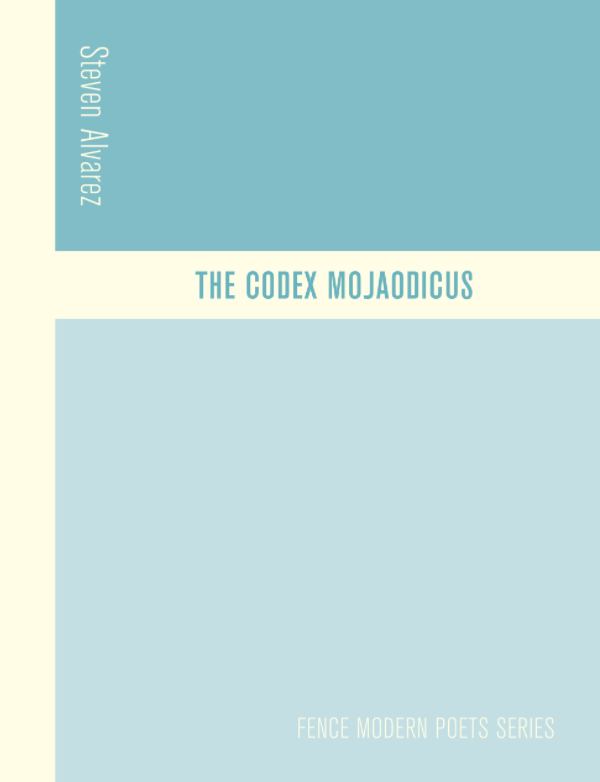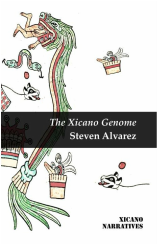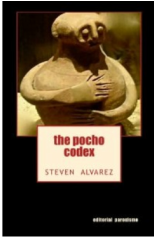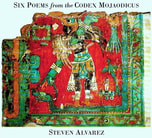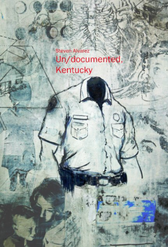Now at last he explains that it will, when the hundreth Canto is finished, display a structure like that of a Bach Fugue.
--W. B. Yeats
S I N G G O D D A M N
=>L o n d o n 1 9 1 5
Sing: Drained grey morning stubborn light and we marveled him prissing bohemian, this would-be dandified Whistler, dandying as dandies did, sauntering along Soho Square, sporting an unbuttoned wine-dark purple coat, sharp-creased orange slacks, green shirt collars upturned, rosy necktie loosened, one hand deep in pocket the other tapping time-bar on the streetcurb with the cane he fashionably handled. We literally bit our tongues in restraint as we had already understood his flirtations with vortical abstractions.
How colorful Ezra felt his way through Albion leaving his arrogant trail as a series of accommodations and advantages taken. This we heard. Yes and that durable Amurikan hair extending his body into space. We all knew his hair. His hair everyone knew. We called it his Poundpadour. (Note: Rodeo clowns wear Pound garb.)
He didn’t whistle when we stopped Pound couldn’t whistle much, much
him. Hey Pound, we sd, “. . .” less carry a tune Williams sd
And he stopped tapping his cane in an interview.[i] How in the hell did he
quick as that. “Do you mean write an opera? the good doctor
. . . g . W . . l l y?” asked.
“Well, smut’s smut, and you DAMN well know smut.”
And he replied: “With minds still hovering above their testicles certain poets here and in France still sigh over established and natural fact long since fully discussed by Ovid.”[ii]
“. . .”
“They howl.”
We nodded.
“They complain in delicate and exhausted metres”—dropped his cane—“that the twitching of three abdominal nerves”—pelvic thrust thrice—“is incapable of producing a lasting Nirvana.” Index finger pointing to high heaven.
Pound picked up his cane and carried on as before.
We took that for whatever it meant, and we agreed that one ought not to listen to poetic P’s prosaics with more than a grain of salt. Difficult for us to trust an Amurikan poet who rarely boozed.
We scurried after him, his stiff hair remaining so in the cool breeze.
“But Pound, w. . no . . o b . ck . . A . eri . a ?”
“Yr idea of permanently living in America is of course most revolting,” he sd. He turned.
_____________________________________________________________________________
( A L T A F O R T E )
P O E T
Out of a job.
Specialties: incisive speech, sarcasm, meditation, irony
(at special rates), ze grande manair (to order)
Will do to travel, or stand unhitched while being fed.
Price £1 per hr. —special rates for steady consumers.[iii]
______________________________________________________________________________
=>Pound silently sang as he composed S I N G S I G N S
and so he heard voices, and these “I believe in an ‘absolute rhythm’, a rhythm, that is,
voices were personas he dramatized as T O
his ego, and these all spoke in rhyth- in poetry which corresponds exactly to the shade of
mical phrases. These phrase-rhythms spoke S O U N D S E N S E
to another, and the discourses were his Cantos emotion to be expressed . . . ”
poetics: rhythmic exchanges in language, im- oral tradition = aural tradition
age, history, character, and what he considered sense-ratio of verse
the process of civilization and nation- RHYTHM to ear
building. M o n t a g e / S p l i c e C L O G G E D
Those who heard him when he typed solution: prosody engaging
heard the percussive space bar pop pop P O P. voice as body
U K A S E
persona justifies poem /
projection of egoform => ergo => E G O manifest / into
form => performative of self / spilling presence
into siphon/
L i v e a s v a r I o u s l y a s p o s s I b l e
=>O and how EP hated the Philistines, and how he shook the dust from provincial Amurika from his blistered boots to tread romantic ruts worn by troubadours. O how he shoved the nineteenth century into the gutter. And how he shattered outmoded sentiments commanding us all to make it new, brash, fresh, right, true. The spirit of modern.
______________________________________________________________________________
=>“My mind, such as I have,
“works by a sort of fusion,
“and sudden crystallization,
“and the effort to tie
I n P o e t r y “that kind of action
W o r d s “to the dray work of prose
S e t “is very exhausting.
F R E E “One should have a vegetable
“sort of mind for prose. I mean
“the thought formation should go on
“consecutively and gradually, with order
“rather than epigrams.” 1 9 1 0
__________________________________________________________
“A man’s rhythm must be interpretive . . . his own, uncounterfeiting.”a
Amurika has NO ear thought P / NO authenticity of the aural
U K A S E
“Let the candidate . . .” trailing off
“fill his mind . . .” cough
“with the finest cadences . . . ” attend attend
“he can discover, preferably in
“a foreign language,” B A S T A!
“so that the meaning of the words
“may be less likely to divert his attention
“from the movement . . .”
=>music / rhythm
in verse libre
Herr Pound taught syllable-sound play
SOUND VALUE
(sound scrip)
& as Olson projected in verse
syllables STACK STRESS
Y E S !
& in phrase Anglais the self’s song-truths reckon
prosodies of yore
(yr Old English Seafarer here)
“. . . e.g. Saxon charms, Hebridean Folk Songs, the verse
“of Dante, and the lyrics of Shakespeare . . .”
syllables long & short DURATION / D u r a t i o n
stressed / UNstressed
vowels / consonants
& for Pound into England
arriving by a commodius vicus
to v e r s e i n c r i s i s
(one follows his storm through beaded curtains
under saturated clouds against windows)
Aye / & for early P to fill the ear shd fill the eye.
=>Young Pound (London Pound) composed by the syllabic GRAPHEME as minimal unit. Seeing verse perform on paper impressed him most. Soundstress complimented textshape. The technology of typewriting re-spatialized the pageform with sound accompanying weight, and Pound “revolutionized” formatting by refusing to capitalize the first letters of lines (among other visuals). Had to start somewhere. Gradually as he aged he gravitated from emphasis on grapheme to the syllabic PHONEME, especially with his brush with radio broadcasting and music composition. (Eye to ear--as with Joyce “ear aye seize what no eyes ere grieved for.”[iv]) Note that in his Rome broadcasts he could NOT drop a Chinese character onto his audience, he had to SPEAK the ideogram into breath. Pound discovered (what he had already intuited) that the EAR and not the EYE measured poetry--the tactile, vigorous vocalization of the Modernisms of Stein, Eliot, Joyce, Pound, following Hopkins. McLuhan, The Gutenberg Galaxy: “It is strange that modern readers have been so slow to recognize that the prose of Gertrude Stein with its lack of punctuation and other visual aids, is a carefully devised strategy to get the passive visual reader into participant, oral action. So with E.E. Cummings, or Pound, or Eliot. Vers libre is for the ear as much as for the eye.”[v]
=>Pound at Hamilton: read poetry badly. Williams: “A painful experience . . . It was often impossible to hear the lines . . . His voice would trail off . . . Until they were inaudible from his intensity. I seldom let on except, occasionally, to explore with the comment that unless I could hear the lines how could he expect me to have an opinion of them.”[vi]
But Pound’s sound HAD immense soundsense:
Pound’s poetry is speech, but not easy natural conversation; the syntax is natural to speech in America, but the rhythm (as proven better by listening to the poet read, as always) produces a kind of near-singing, near-praying, oratorical delivery. Pound’s most important contribution to the science of literary advice may be his insistence that the laws that govern music also govern metrics.[vii]
Listen to Pound rrrrrrroll his R’s like he was Scottish. And his cadence. Compose in the sequence of the musical phrase, don’t chop up “yr stuff” into iambs, he sd. Listen to the lengthening and shortening of his vowels: “Oohsoorrraaah.” Stress and resonance. And the foundation to his poetic truth is RHYTHM. Pound couldn’t carry a tune, but he could sense patterns of sound shape beat-beating, the architectonics of form, and the force of words and phrases commingling and bouncing off one another.
And yet as a mediocre musician who couldn’t carry a tune he spoke as per typical megalomaniacal Amurikan Pound with a postured ethos, raging authoritas:
“Let the neophyte know
“assonance and alliteration
“rhyme immediate and delayed
“simple and polyphonic
“as a musician would expect to know
“harmony and counterpoint
“and all the minutiae of his craft.”
=>L o n d o n 1 9 0 5 [viii]
“Ray” left Wyncote on a “cheap ticket
to Paris” and attended two weeks of
Sorbonne lectures. After this off to London.
Hallo London, I’m Ezra POUND! And he
thought about living London. He stayed in
a boardinghouse on Duchess Street and
found his way to the British Museum
Reading Room where the ghost of Marx loomed and looked upon him. Capital hair hot Karl sd. Slippery and uncomfortable chairs, Pound sd.
He looked up at the tiers of books, covers of all colors. How long wd it take to read all these, to transfer all this learnin into brainjuice globs? No, Pound sd. Another way. There must be some other way for a human to make use of all this vast cultural heritage.
What’s necessary to read, and what’s not?
By the beginning of the next year, he found his method: SELECTION and not ANALYSIS. Pound would pick random works of art, lines in a poem, pieces of music, news snippets, raw information, whatever happened to catch his attention at the moment and related to his most recent obsession and heft these fragments to the light allowing their significances to shine forth self-evidently. Luminous details he termed them. Ideogramic
.
a “This is for rhythm, his vocabulary must of course be found in his native tongue.”
[i] Williams, William Carlos. “A Tribute to Ezra Pound.” Penn Sound. Yale University Radio. WYBC, New Haven. 5
December 1955. <http://writing.upenn.edu/pennsound/x/Williams-WC.html>
[ii] Pound, Ezra. “Frates Minores.” Early Writings: Poems and Prose. Ira B. Nadel, ed. New York: Penguin Classics,
2005. 53.
[iii] Carpenter, Humphery. A Serious Character: The Life of Ezra Pound. New York: Dell, 1990, c1988. 141.
[iv] Joyce, James. Finnegans Wake. New York: Viking, 1976. 482.35-36
[v] McLuhan, Marshall. The Gutenberg Galaxy: The Making of Typographic Man. New York: The New American Library, 1969, c1962. 83.
[vi] Carpenter, 50.
[vii] Bowering, George. “The New American Prosody: A Look at the Problem of Notating ‘Free’ Verse.” Kulchur 13 Spring (1964): 9.
[viii] Carpenter, 82.
